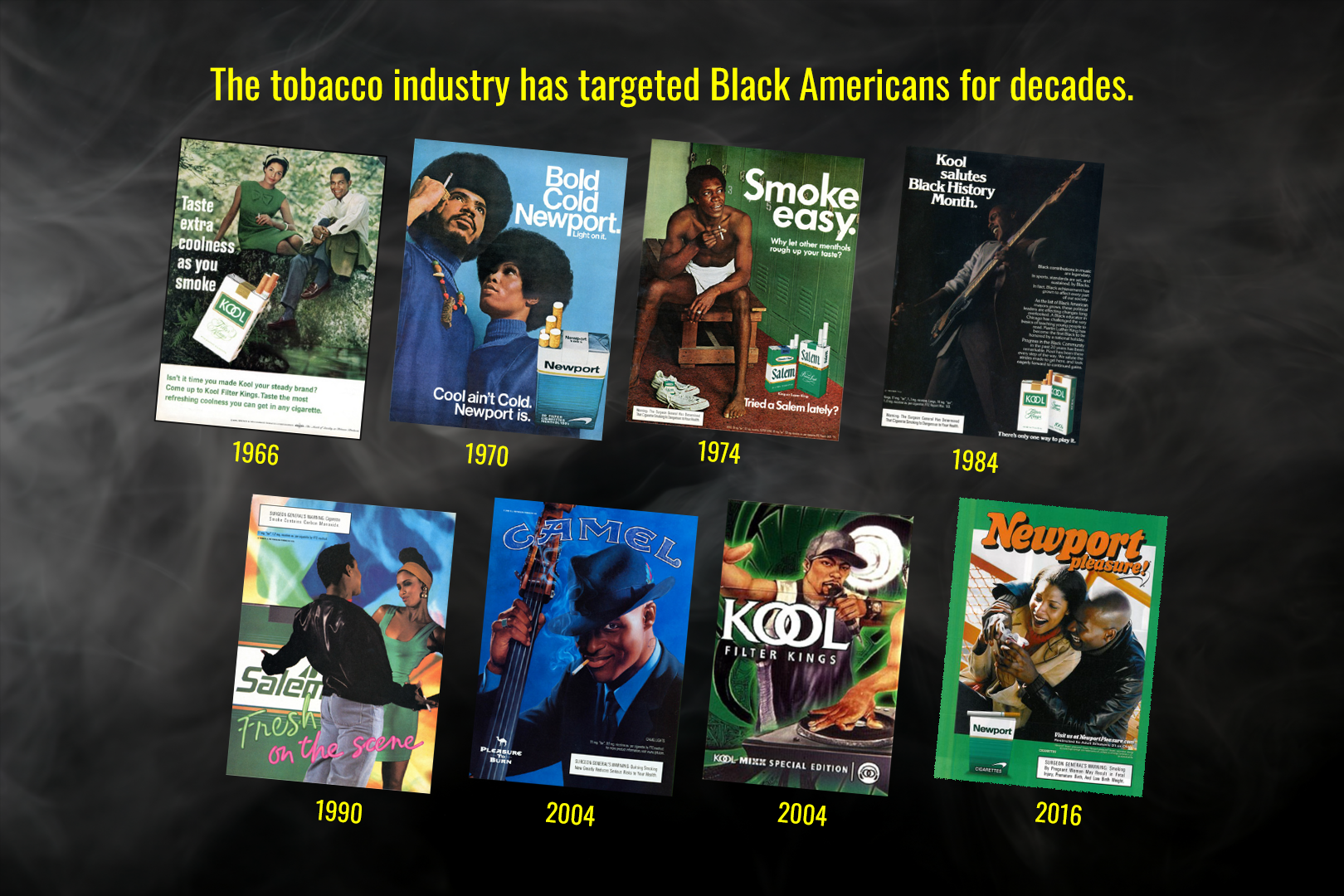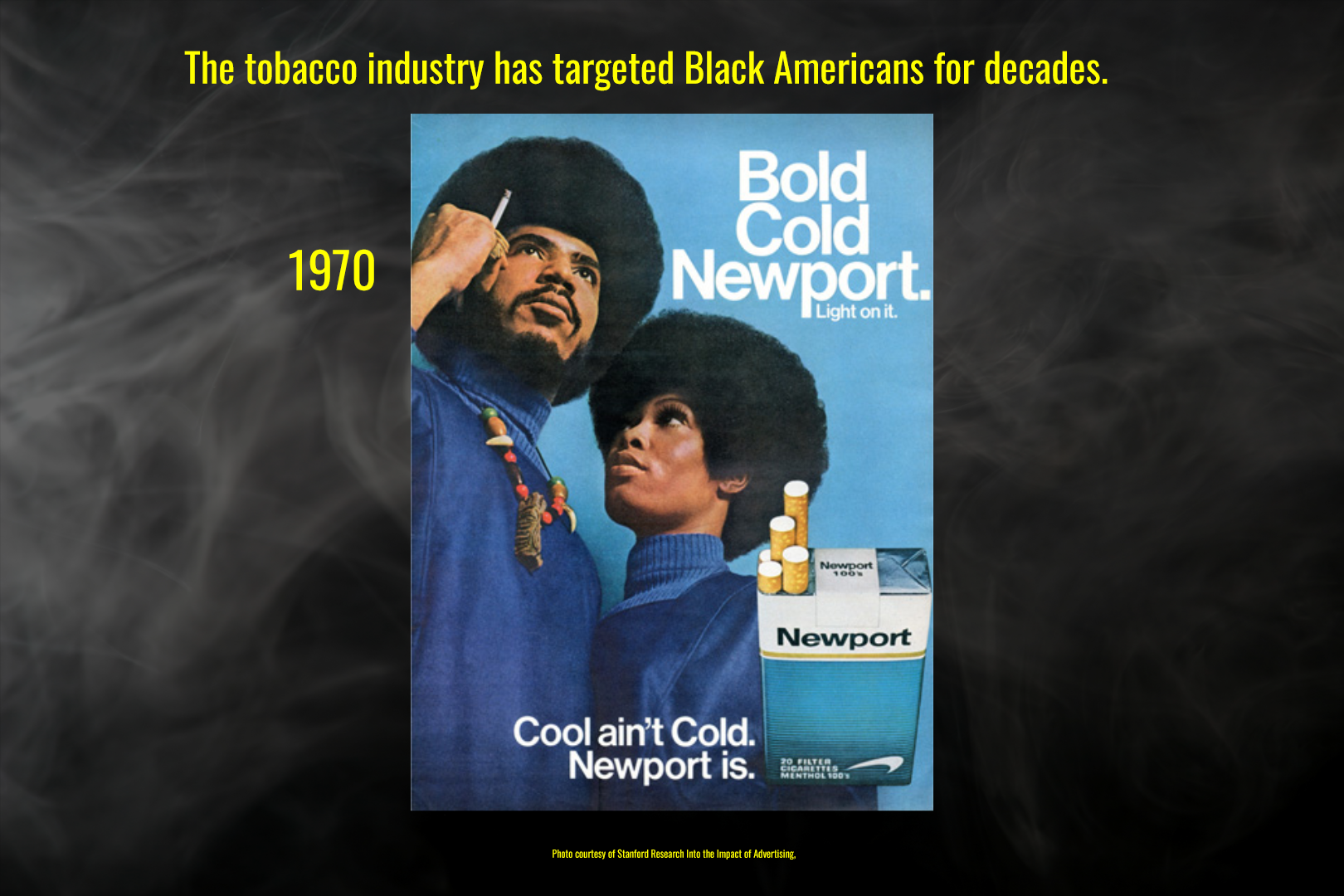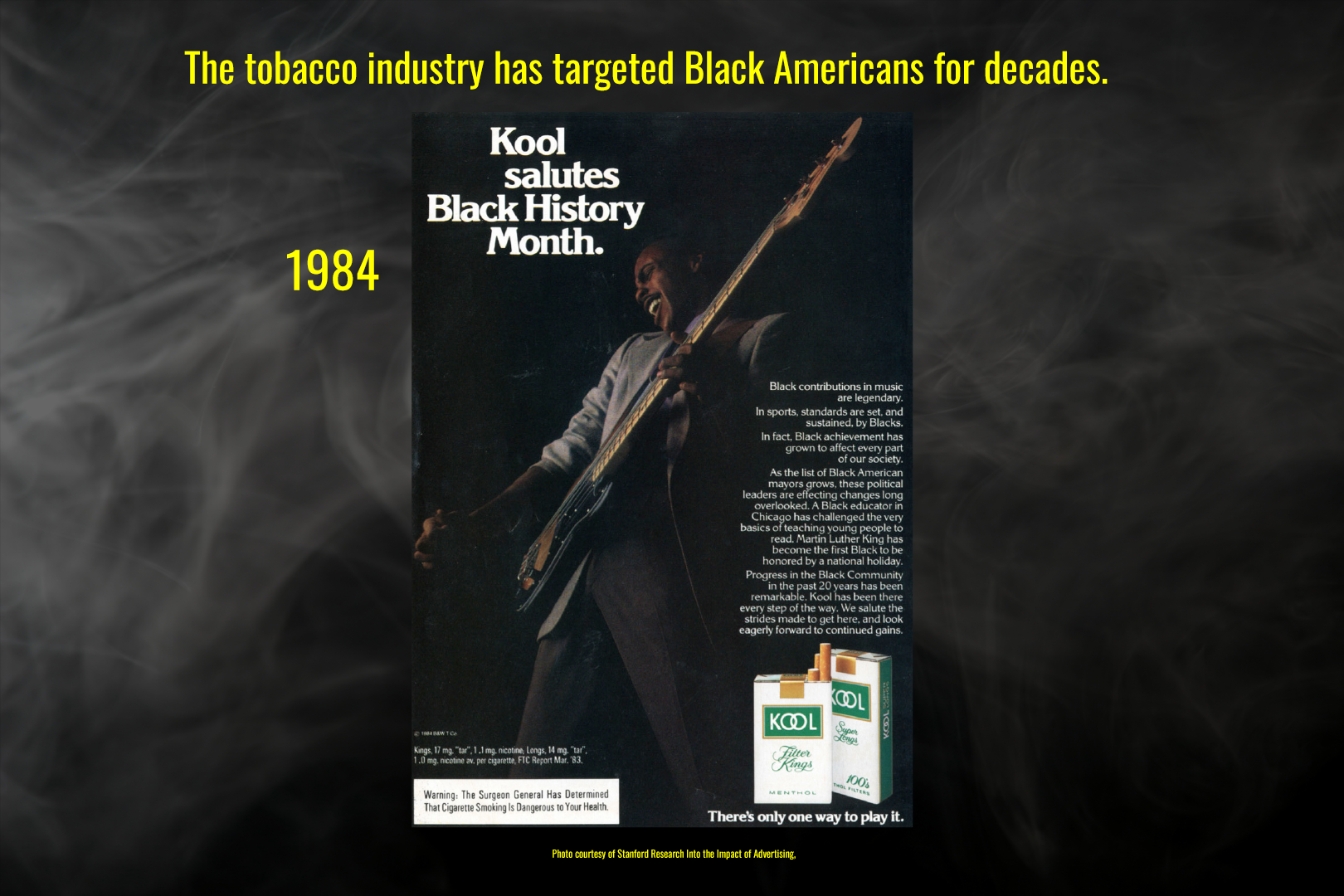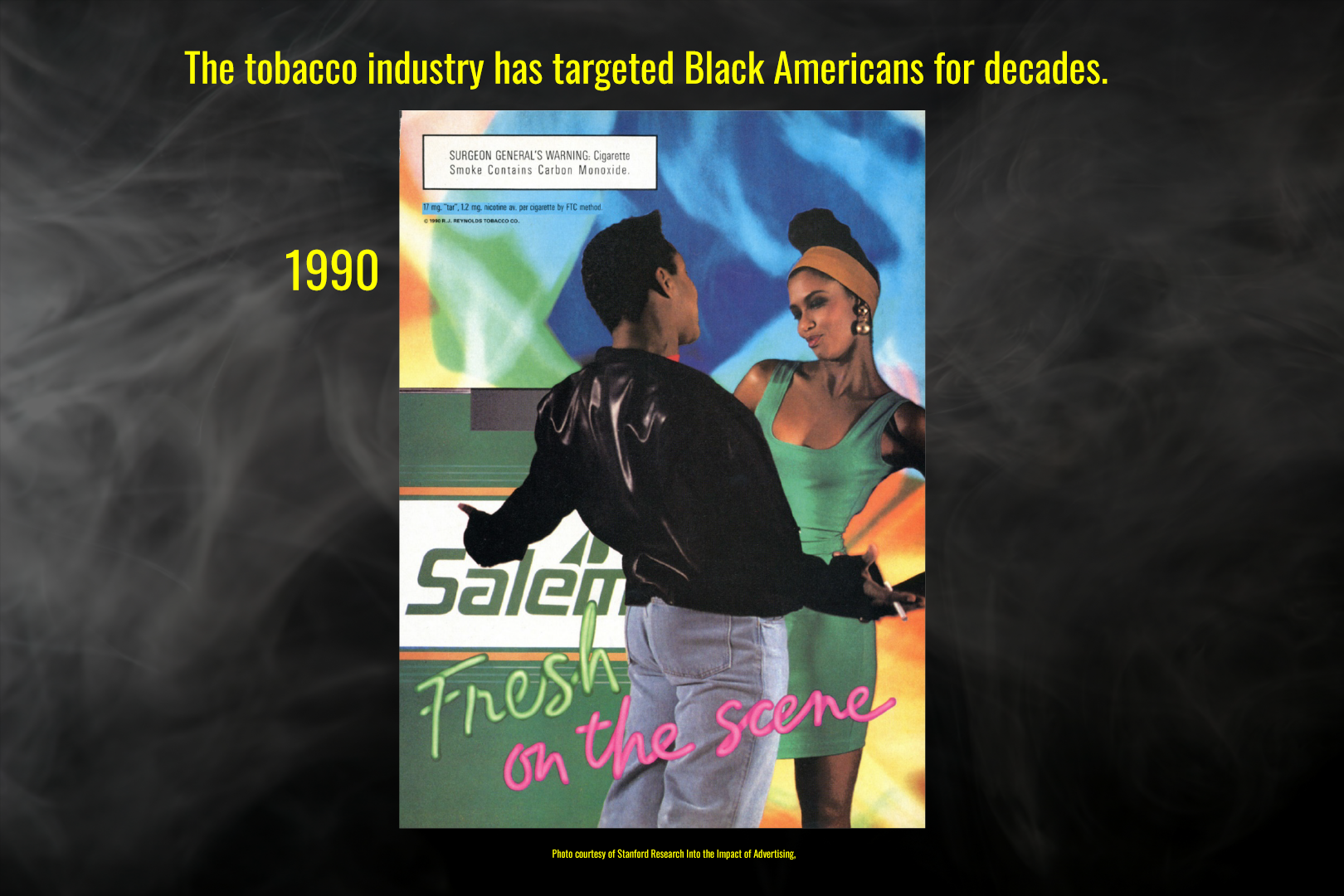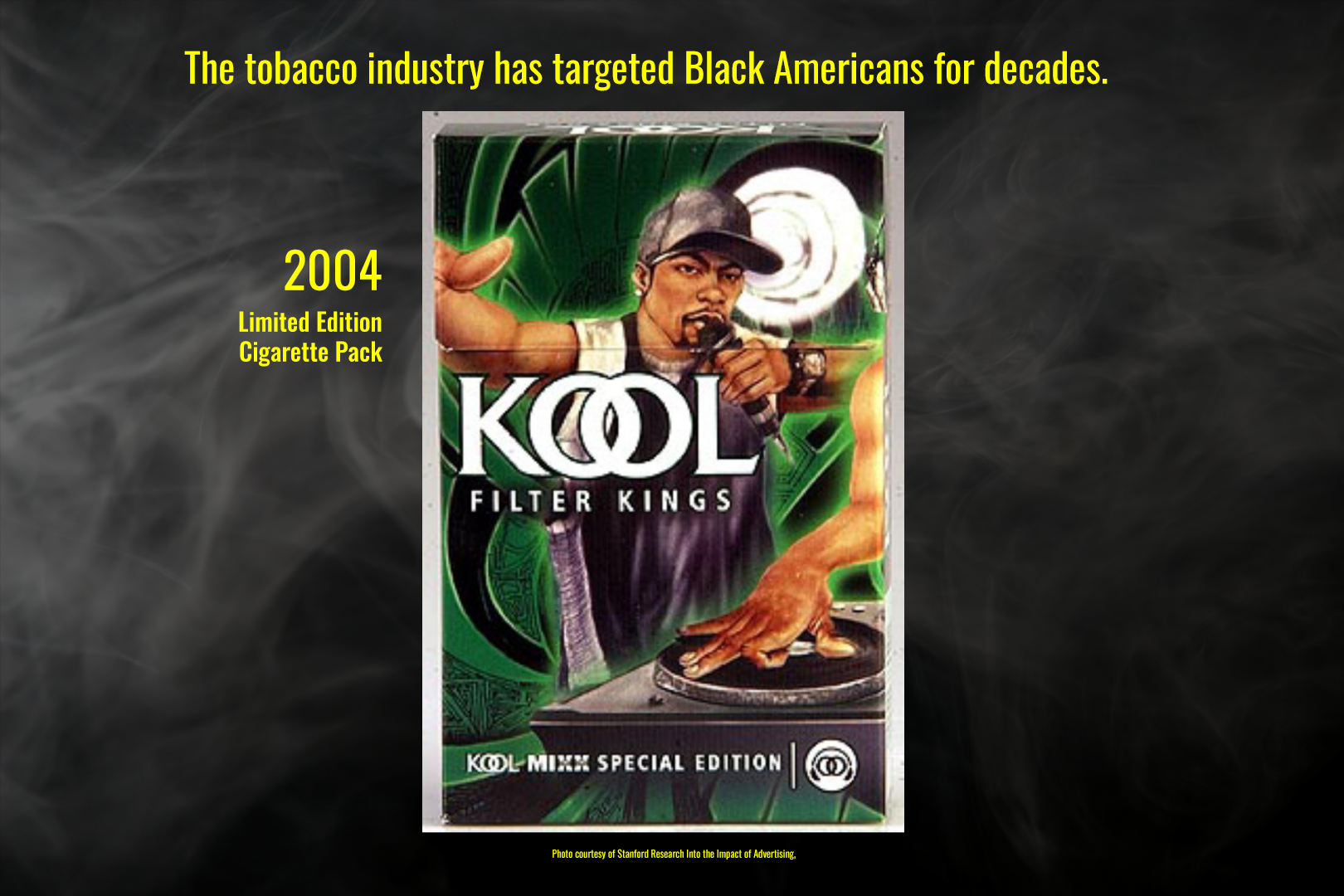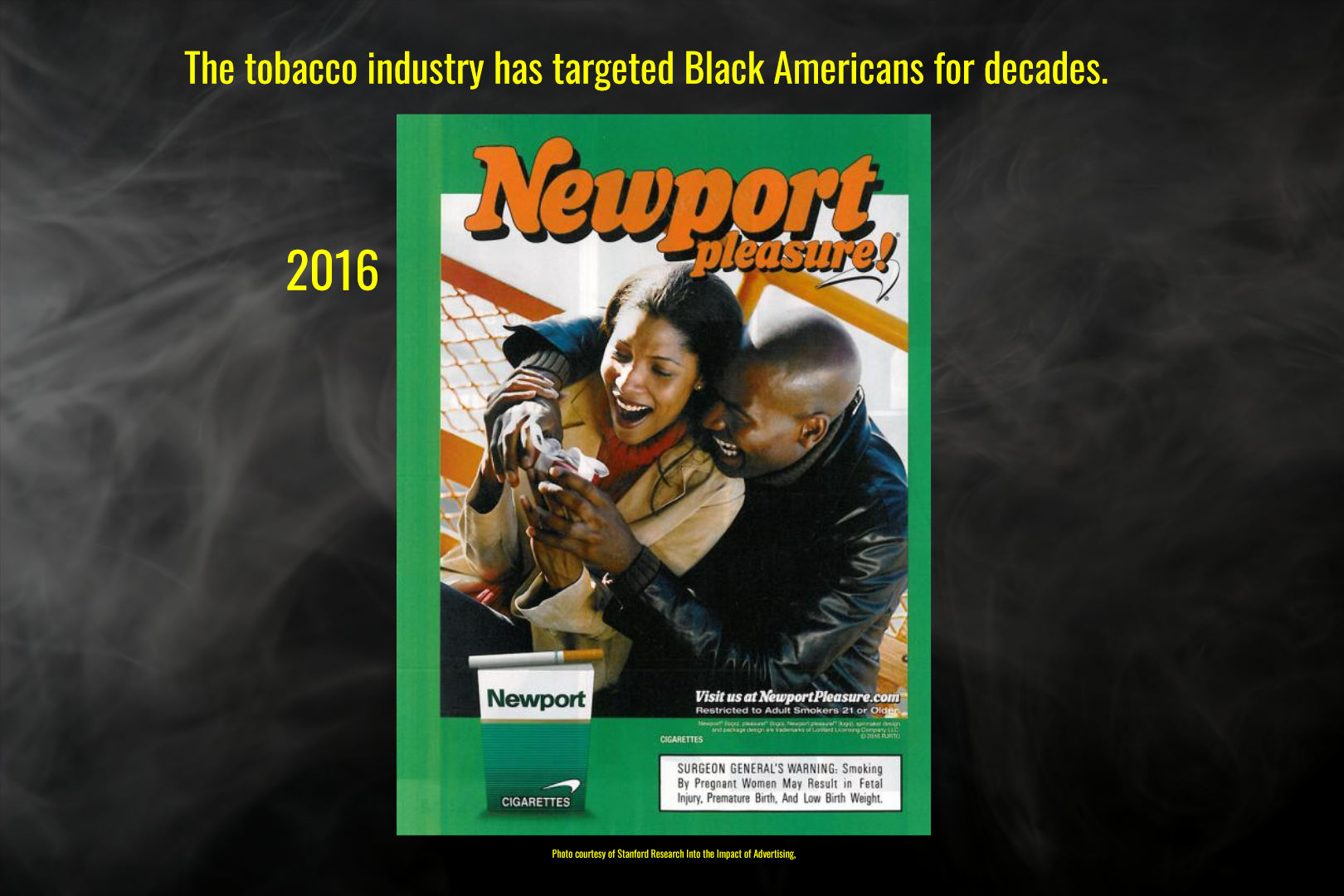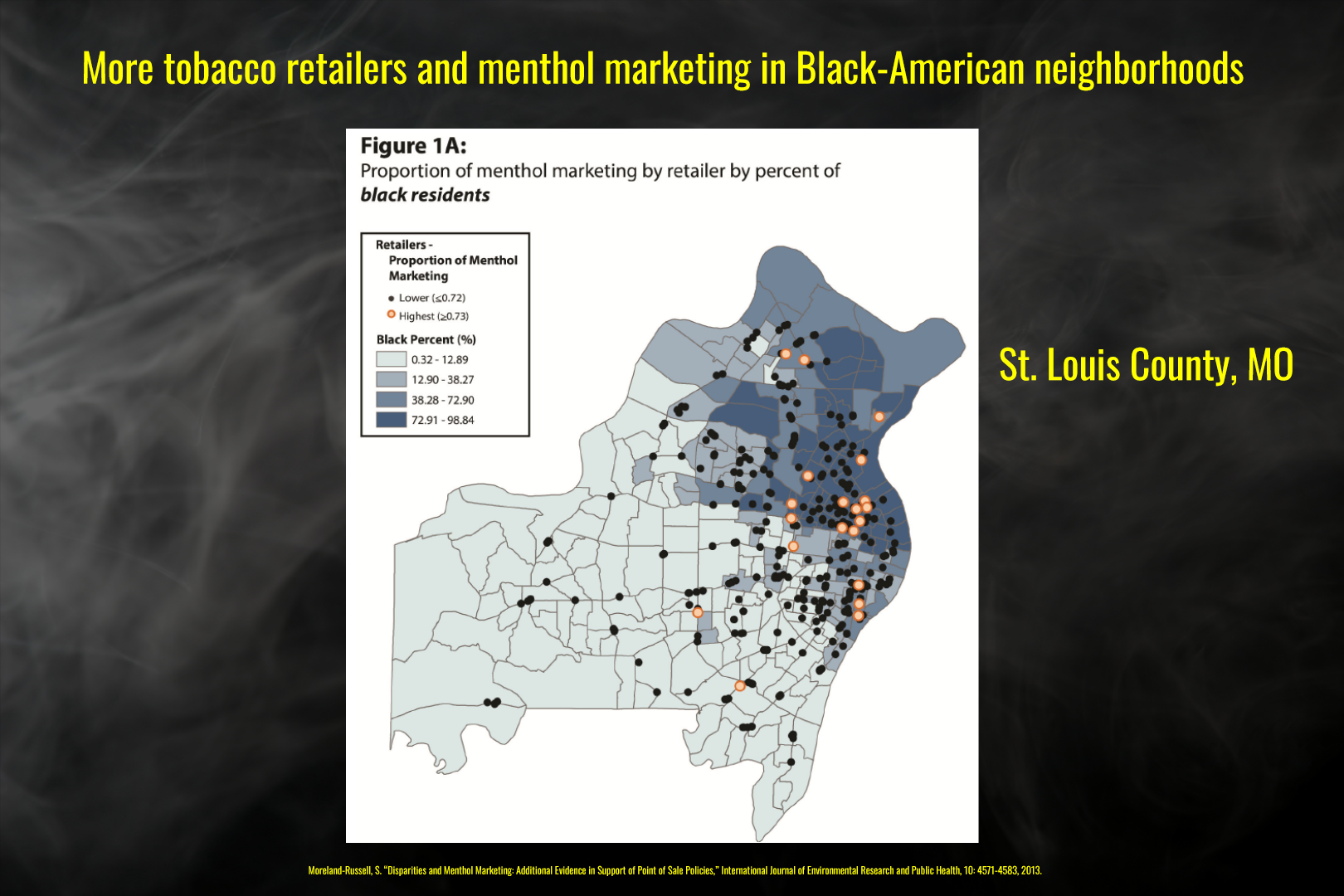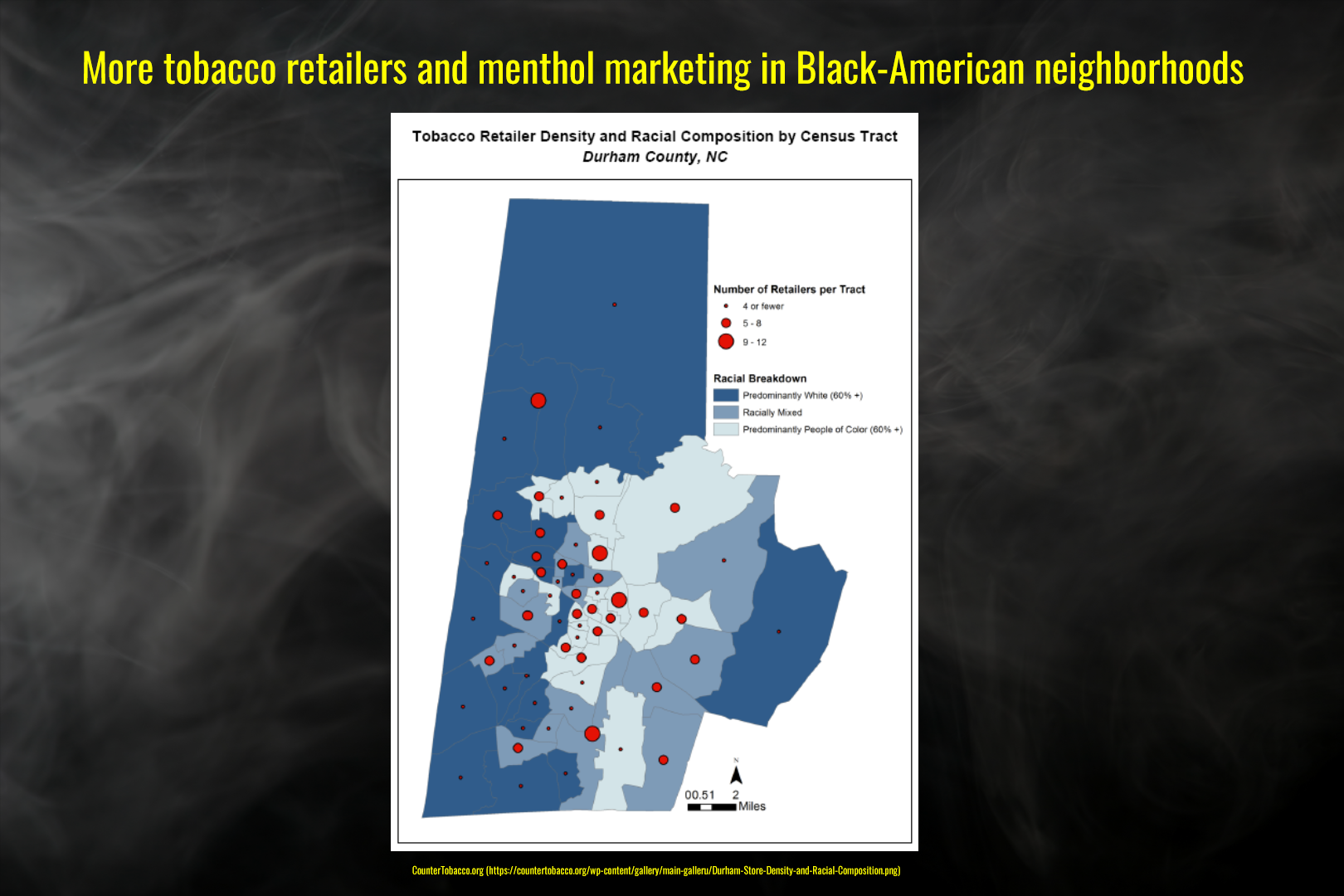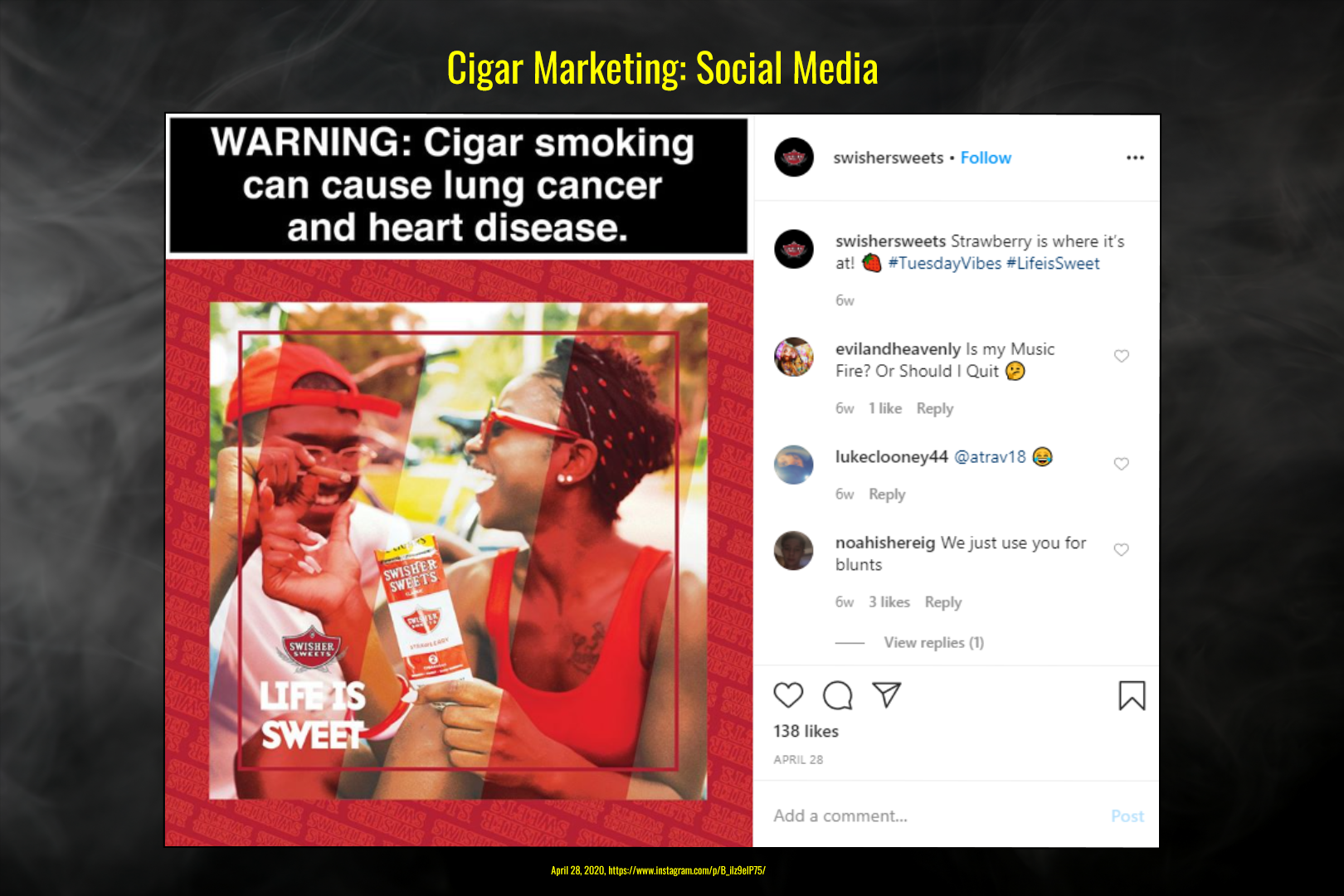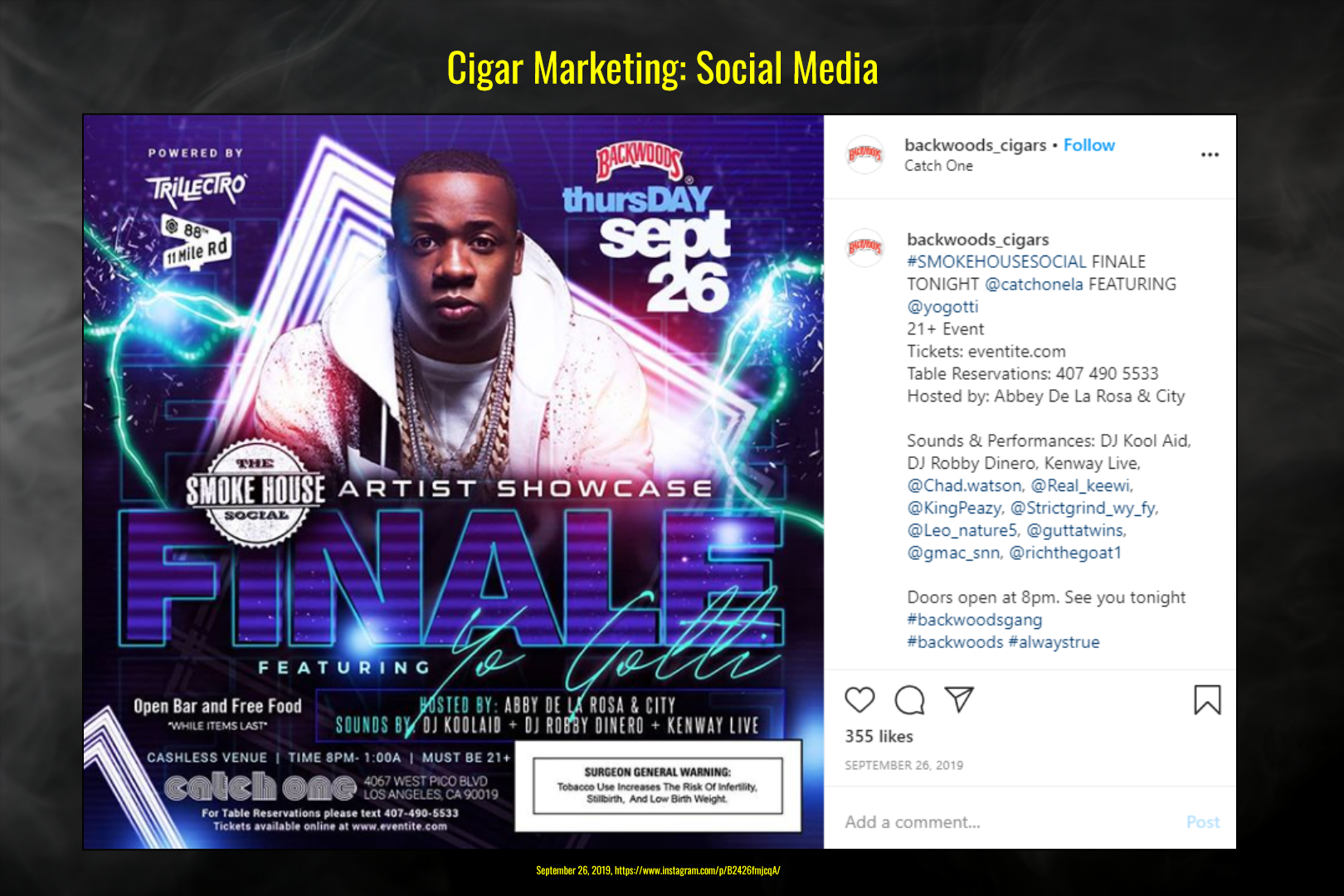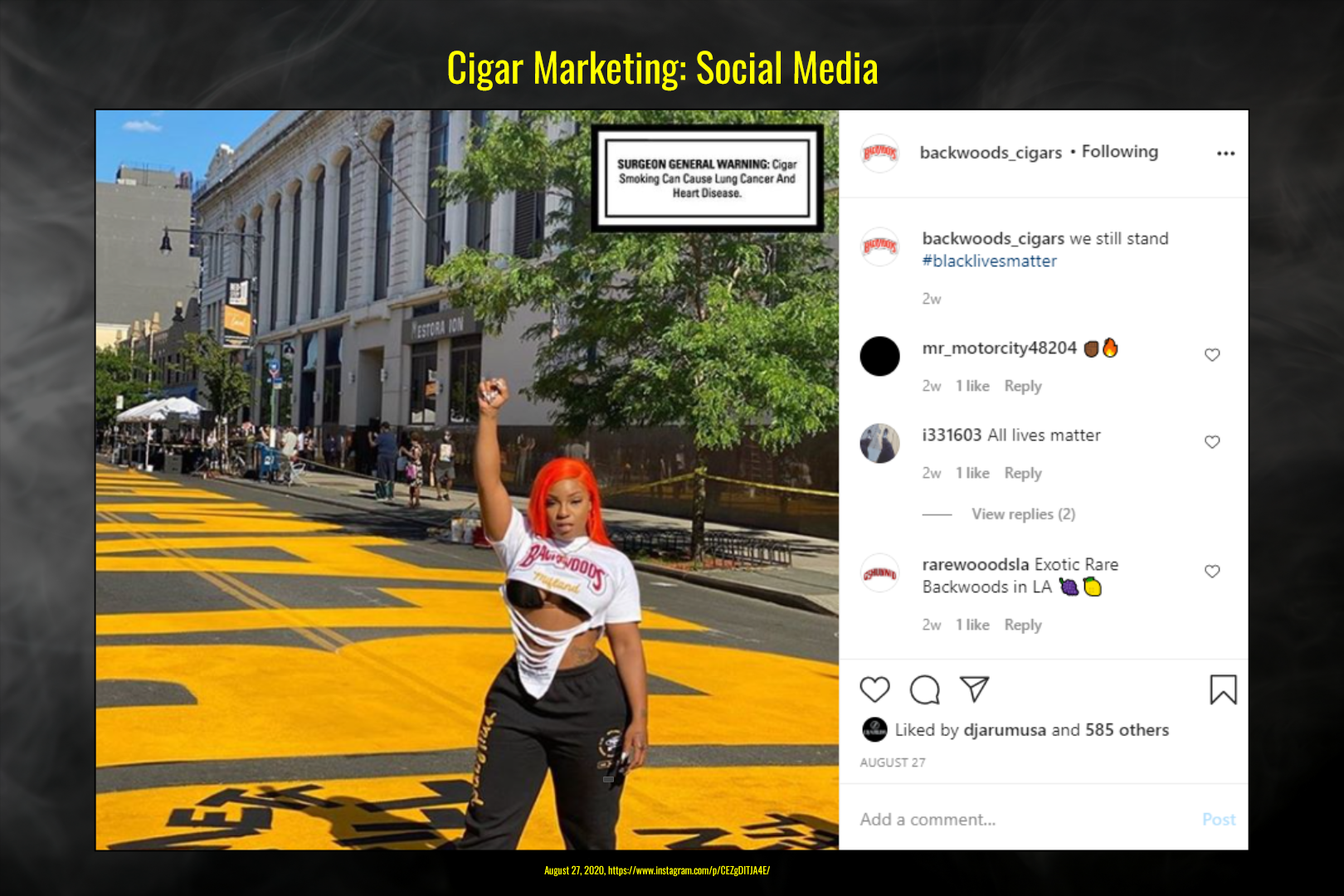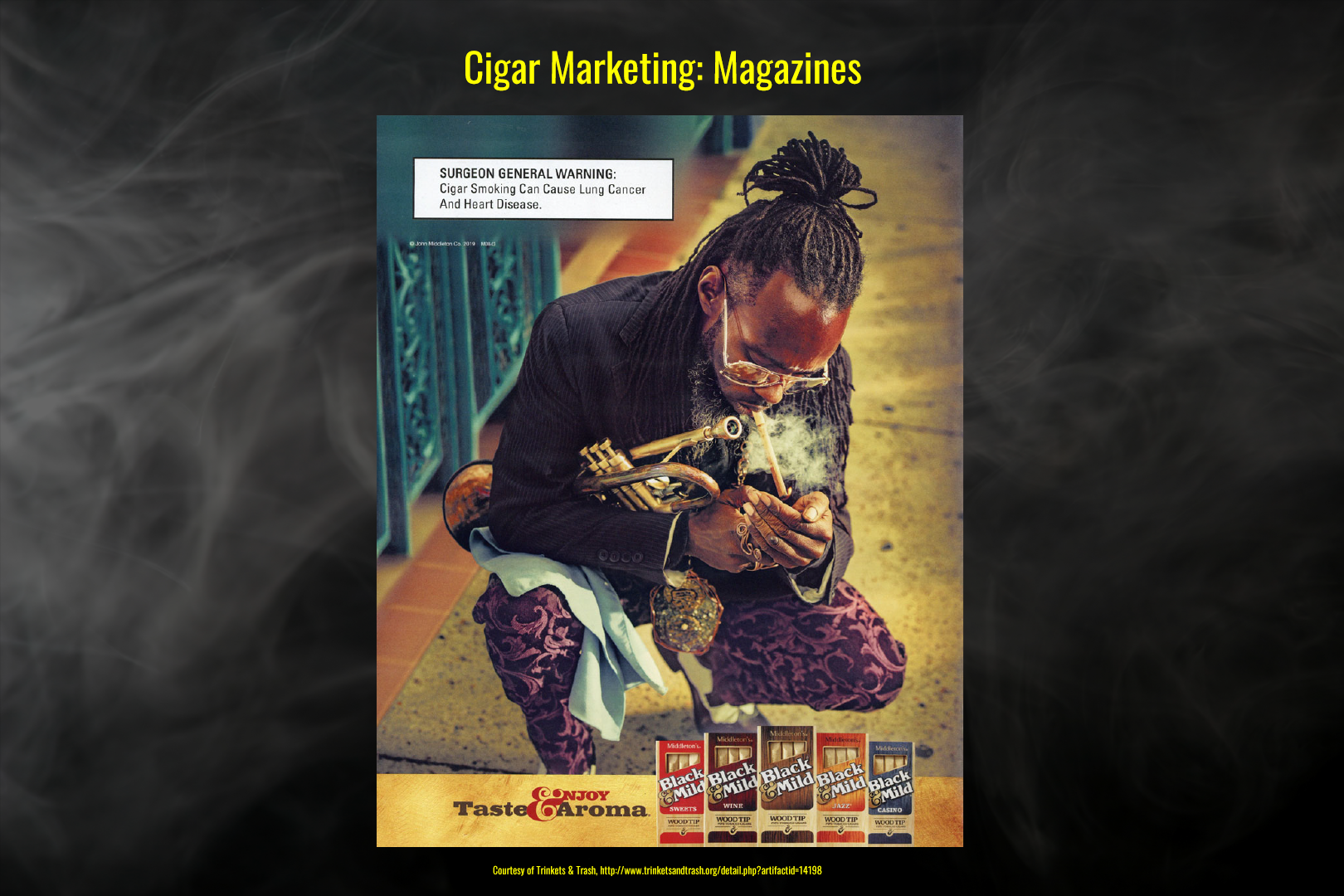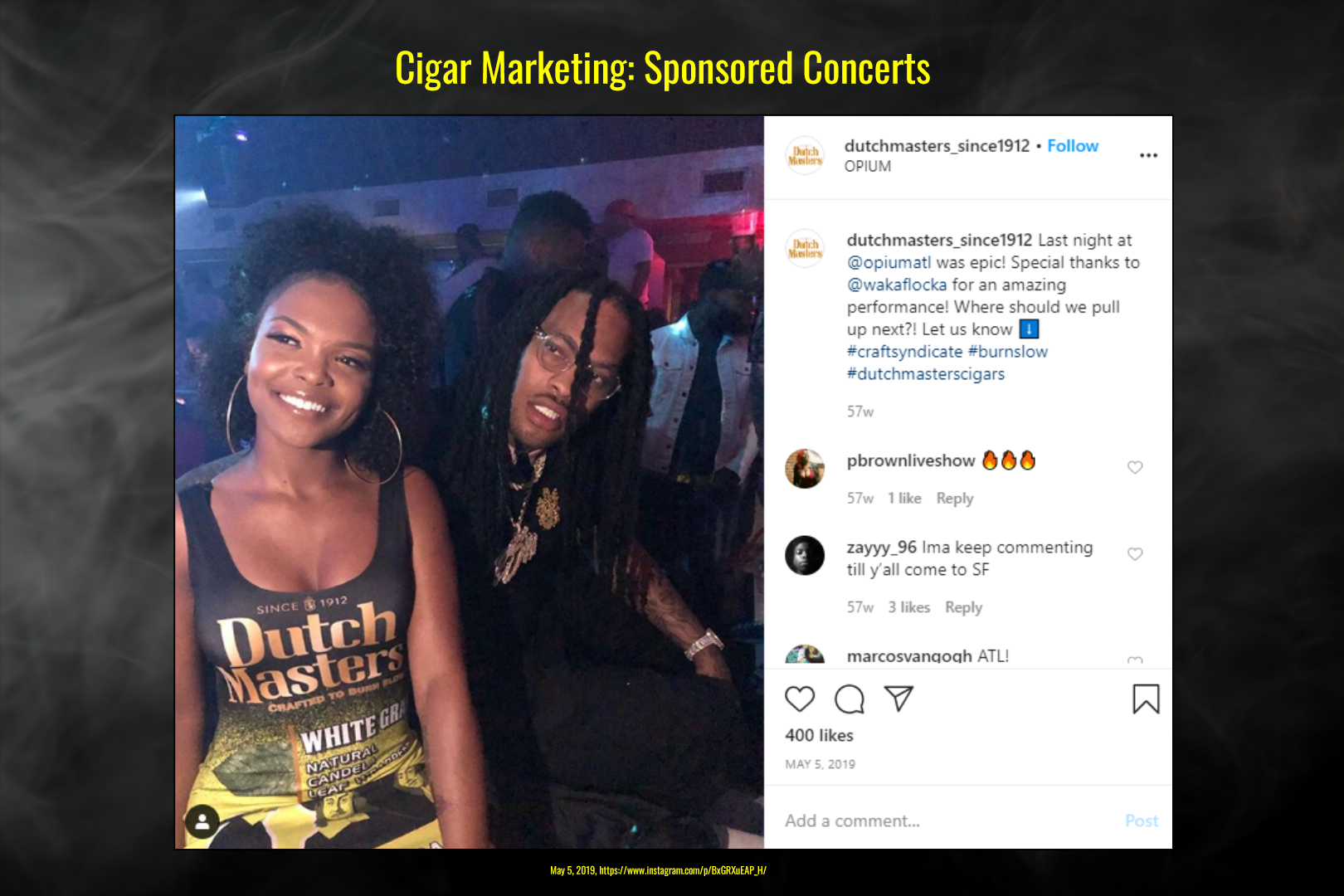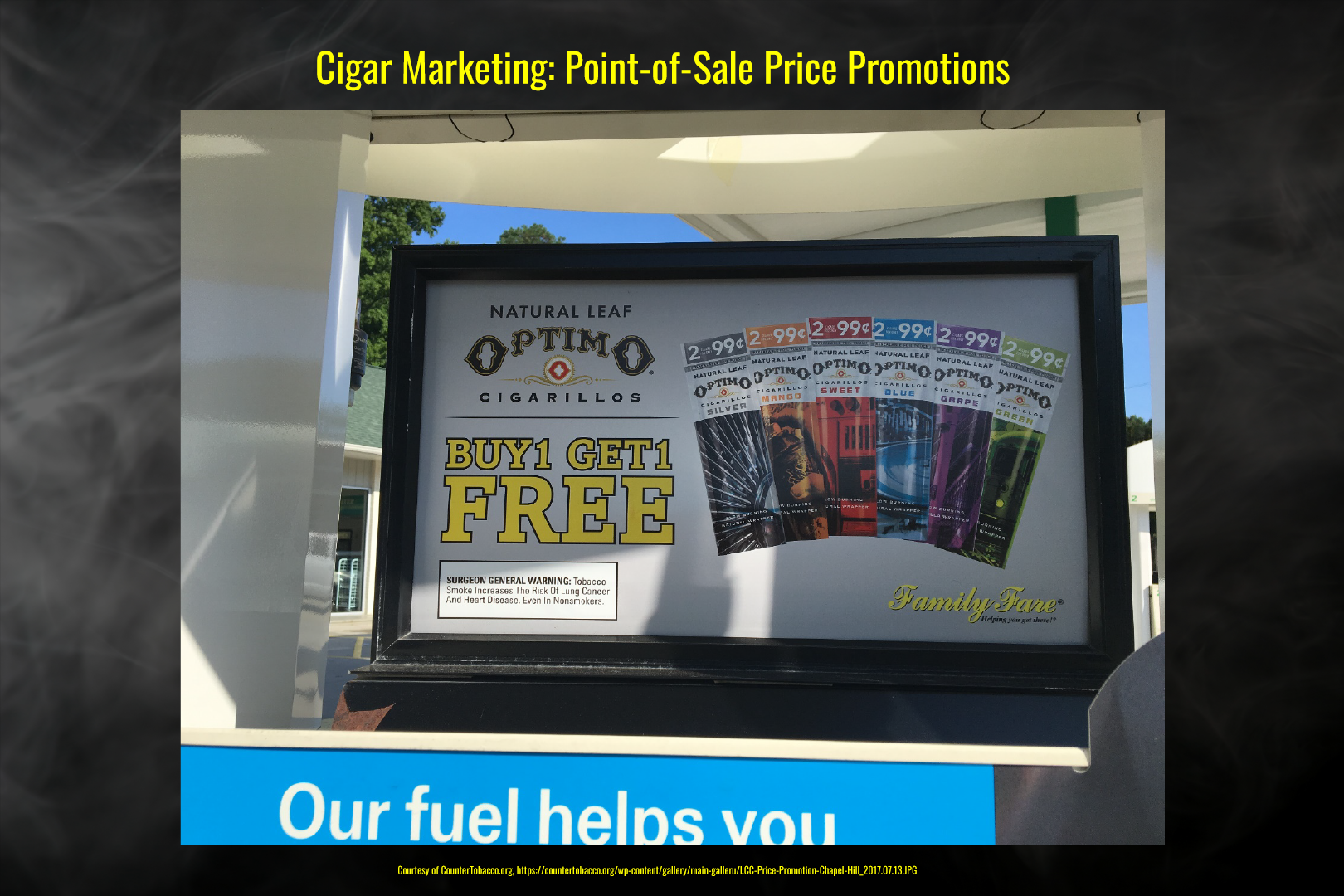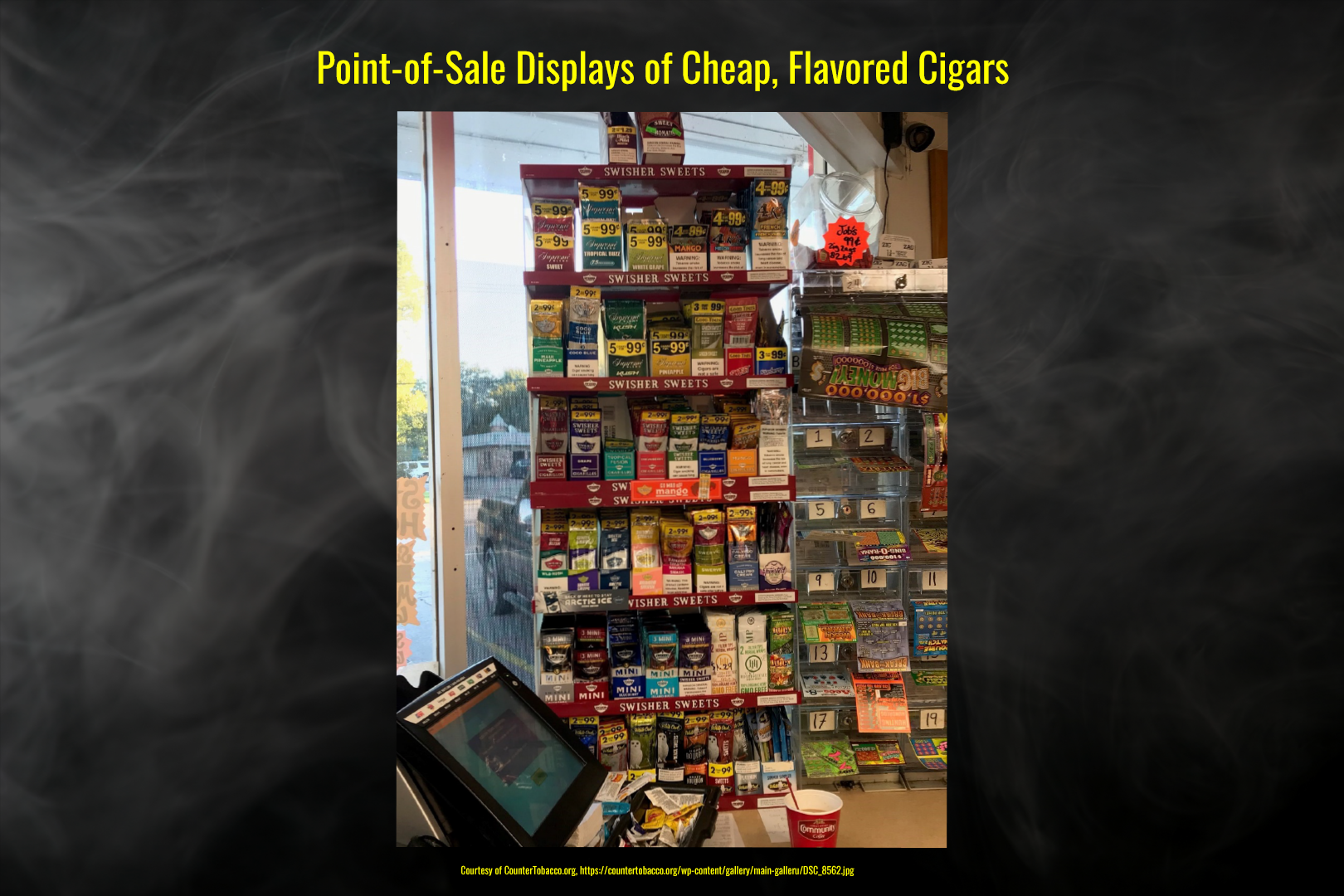Big Tobacco’s Predatory Marketing Has Had a Devastating Impact on Black Health
For decades, the tobacco industry has targeted Black Americans, especially youth, with marketing for menthol cigarettes and other tobacco products like flavored cigars.
The tobacco industry’s predatory marketing has had a devastating impact on Black health and lives. Tobacco use is the number one cause of preventable death among Black Americans, claiming 50,000 Black lives each year. Black Americans are disproportionately impacted by tobacco use and die at higher rates than other groups from tobacco-related diseases such as cancer, heart disease and stroke. Lung cancer is the leading cause of cancer deaths in the Black community.
Slideshow: How Big Tobacco Targets Black Americans
Big Tobacco Targets Black Americans
Here are the facts about the tobacco industry’s deadly targeting of Black Americans:
- For more than 50 years, the tobacco industry has targeted Black Americans with pervasive marketing of menthol cigarettes through sponsorship of community and music events, magazine advertising and retail promotions. Today, menthol cigarettes continue to be heavily advertised, widely available and priced cheaper in Black communities, making them especially appealing to price-sensitive youth.
- The industry’s predatory marketing has worked all too well. In the 1950s, less than 10% of Black smokers used menthol cigarettes. Today, about 88% of Black smokers smoke menthols.
- Menthol masks the harshness of smoking and makes cigarettes more addictive, making it easier for kids to start smoking and harder for addicted smokers to quit.
- The tobacco industry also targets Black communities and youth with marketing for cheap, flavored cigars, which can be smoked like cigarettes. These products are sold in a wide assortment of kid-friendly flavors and can be as cheap as three for 99 cents, making them highly appealing to kids. Black high school students smoke cigars at higher rates compared to other races or ethnicities.
- Today, the tobacco industry is following its menthol playbook by addicting a new generation of kids with e-cigarettes in appealing flavors like bubble gum, mint, mango – and menthol. They continue to prey on young people to maximize profits and ensure the survival of the industry.
Policymakers Must Act to Protect Health and Save Lives
There are immediate steps the FDA, Congress and state and local policymakers should take to stop the tobacco industry’s predatory practices, reduce tobacco-related health disparities and save lives. These include:
- End the sale of flavored tobacco products, including menthol cigarettes. The FDA has the authority to do this, but has repeatedly failed to act. So other policymakers are stepping up. A growing number of states and cities have taken action to restrict the sale of flavored tobacco products. Six states – California, Massachusetts, New Jersey, New York, Rhode Island and Utah – have adopted policies ending the sale of flavored e-cigarettes, and California and Massachusetts became the first states to also prohibit the sale of other flavored tobacco products, including menthol cigarettes.
- Increase funding to tobacco prevention and cessation programs. Tobacco prevention and cessation programs play a critical role in the prevention of many chronic and costly diseases. These programs prevent kids from starting to smoke, assist youth addicted to nicotine, help adult smokers quit, serve as a counter to the ever-present tobacco industry and help reduce tobacco-caused health care costs. With additional funding, CDC and the states would have more resources to address high rates of e-cigarette use by youth, expand effective public education campaigns and provide targeted assistance to groups disproportionately harmed by tobacco products.
These actions will improve health and save lives among Black Americans.
Updated Jan. 23, 2025


